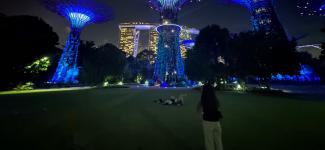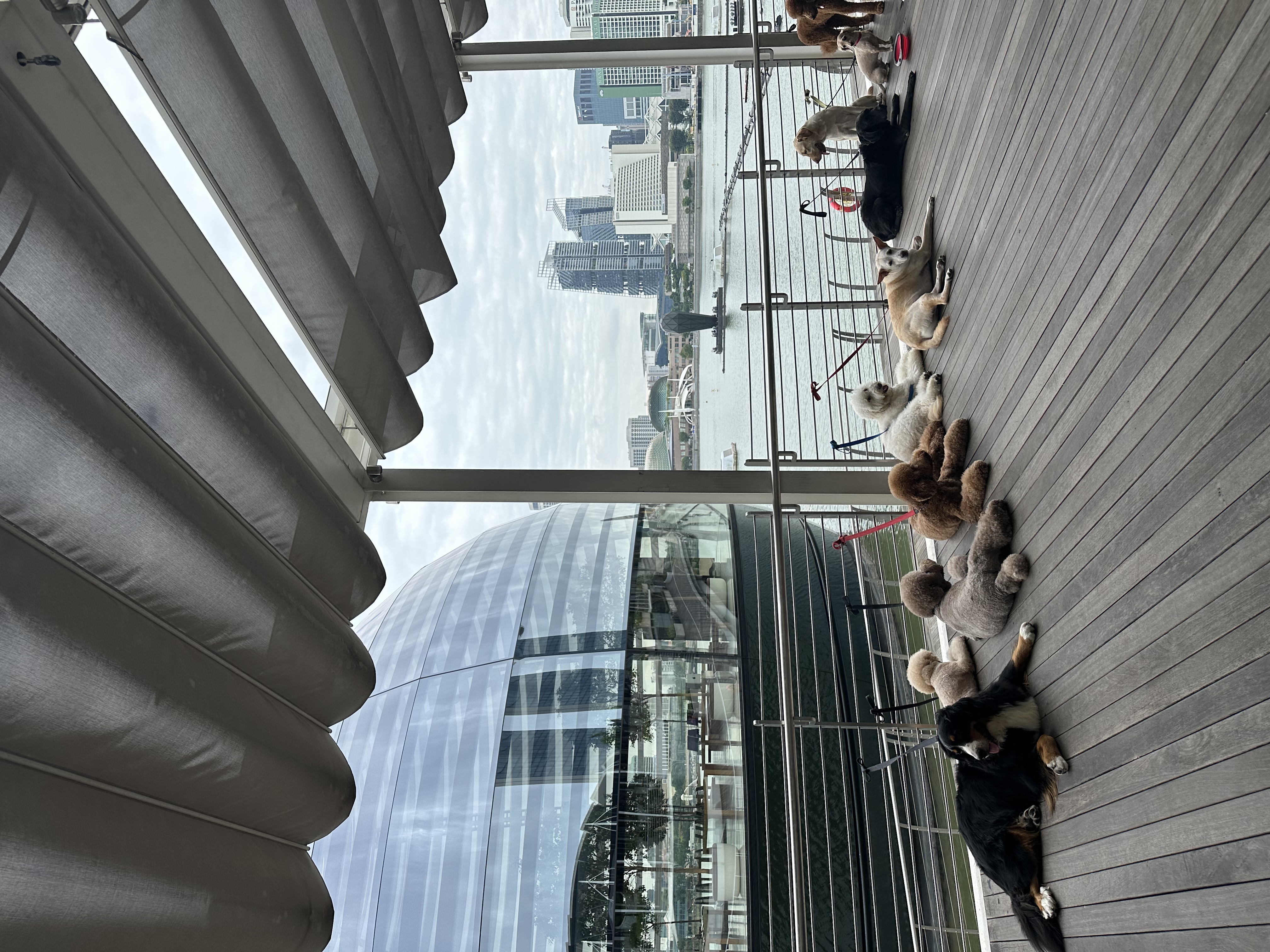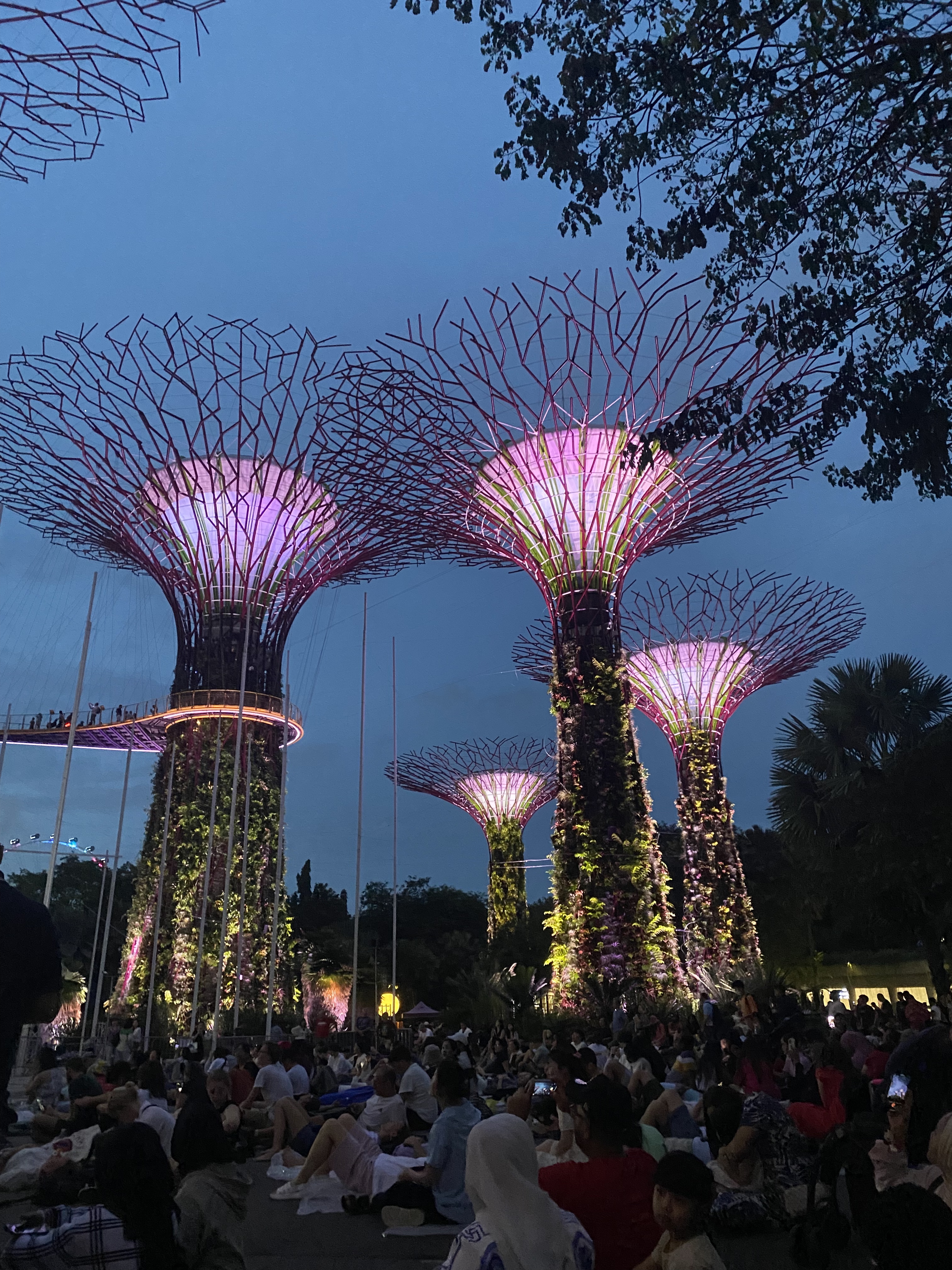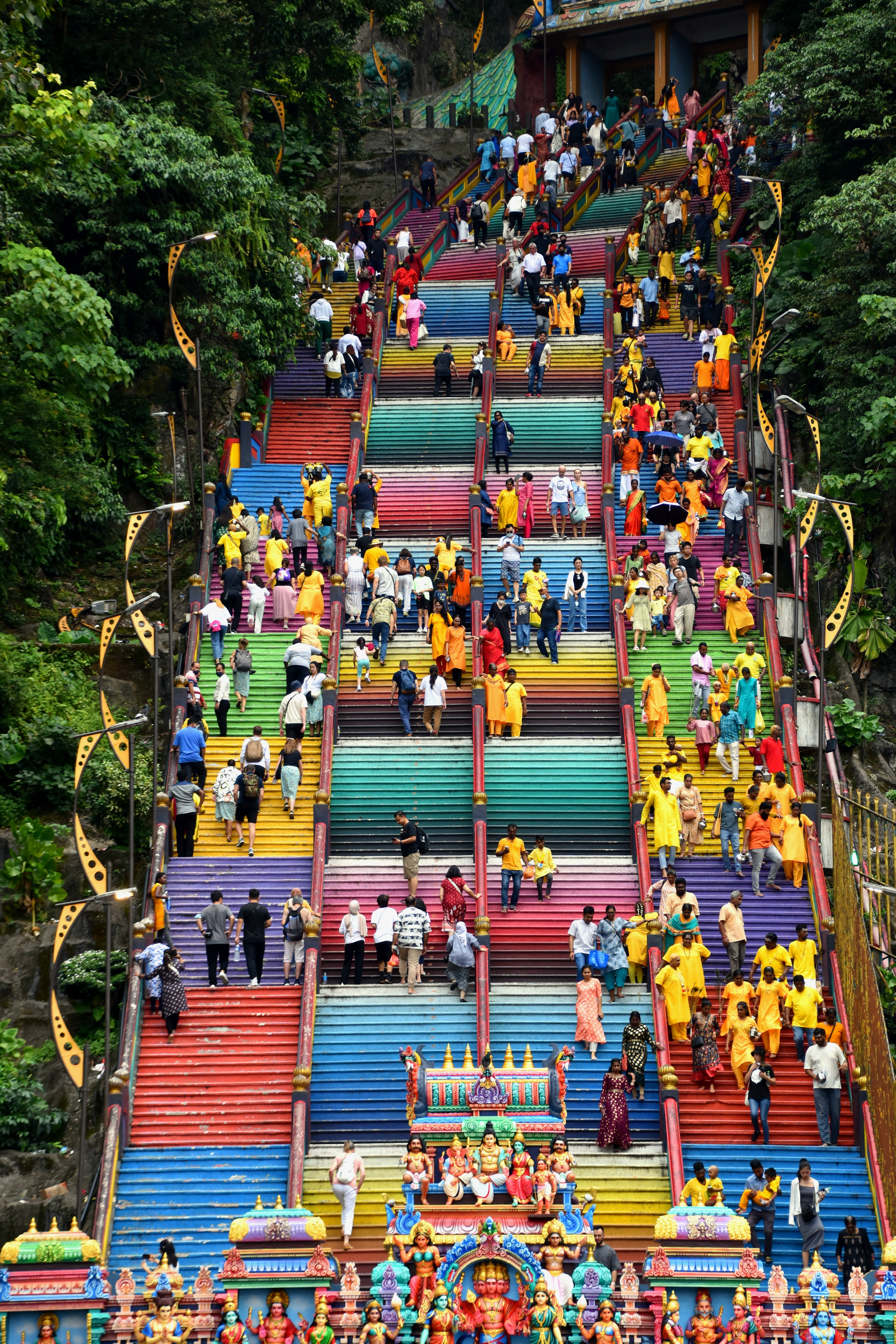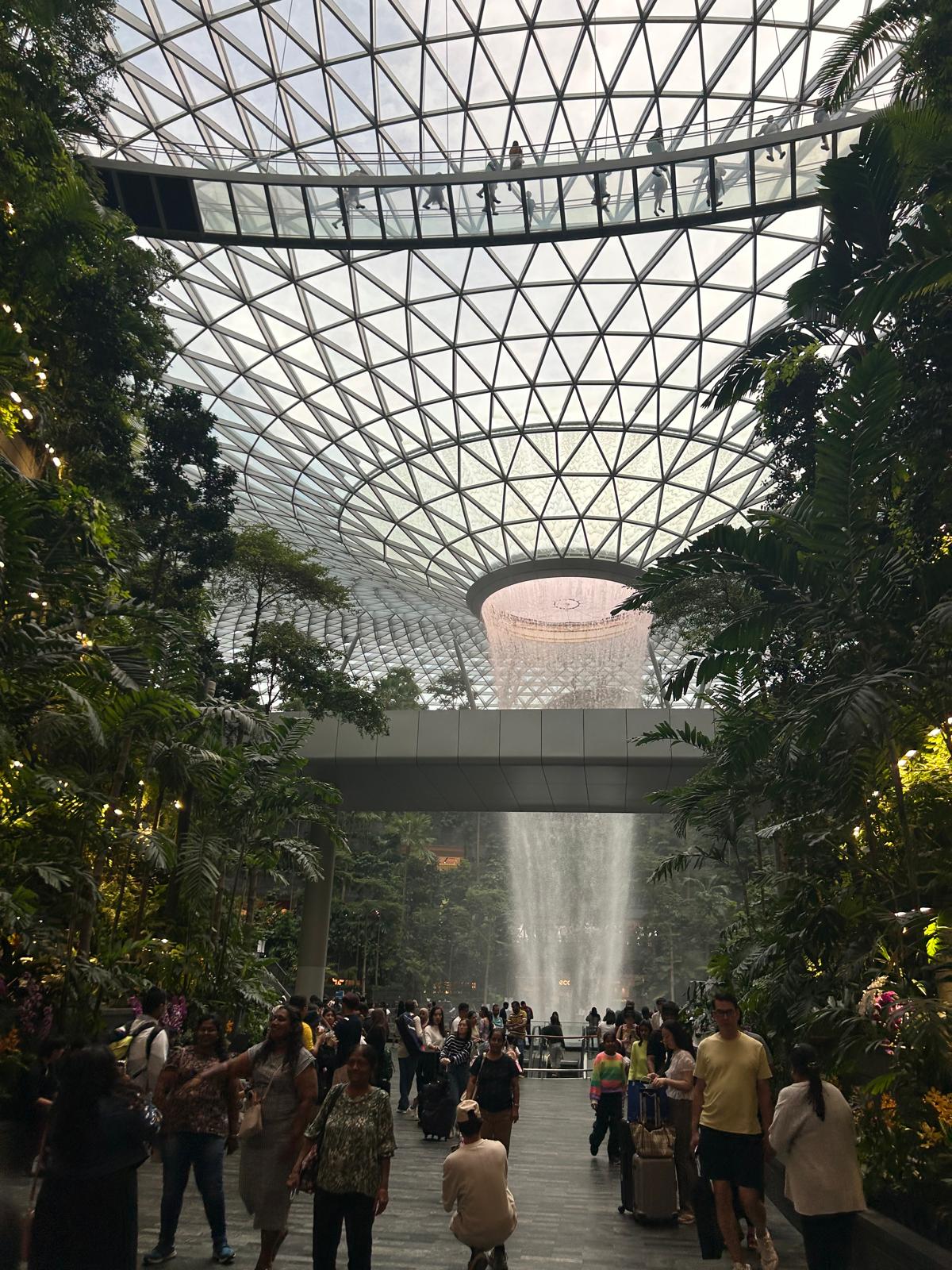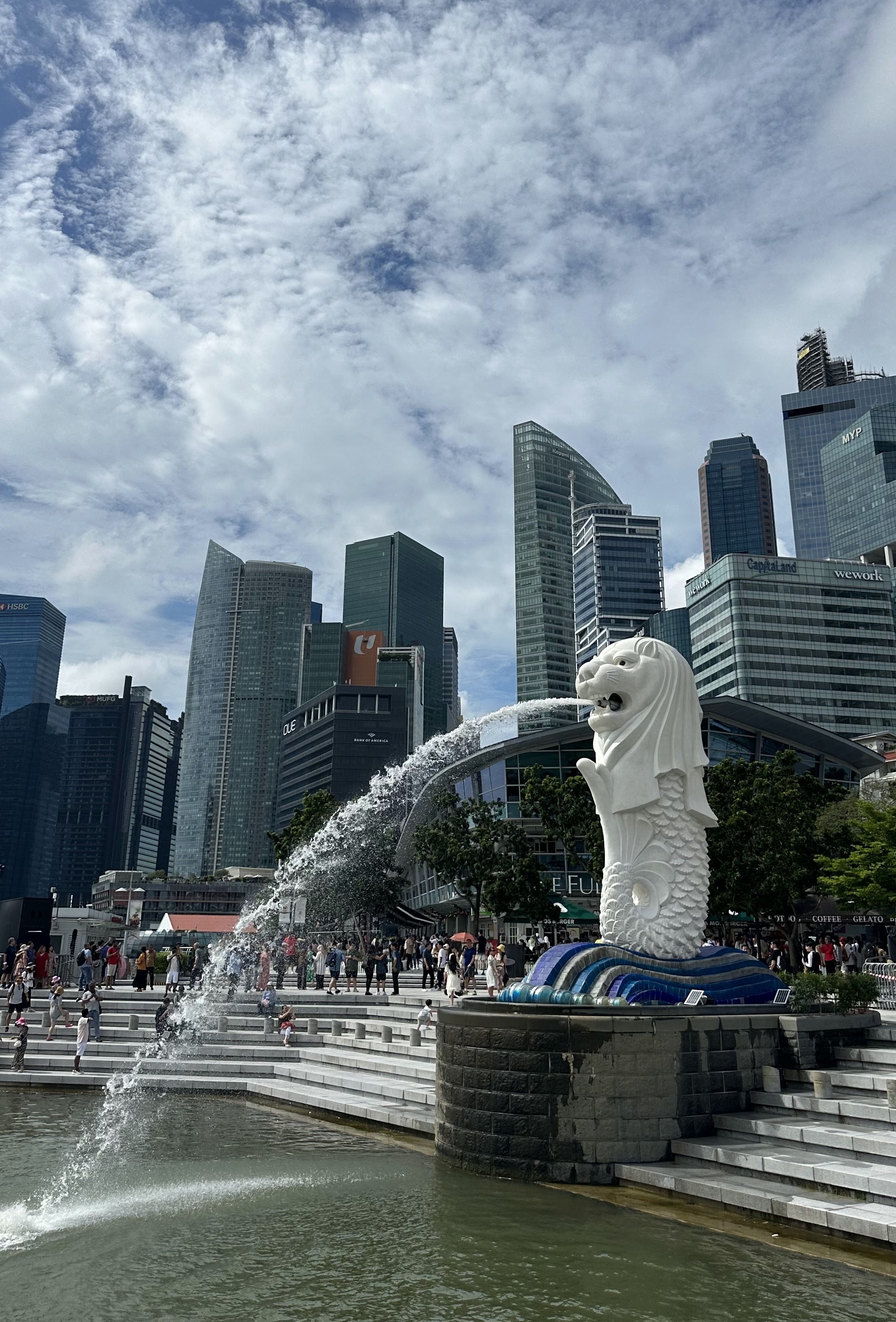Are you a UBC undergrad thinking about going on a student exchange? It can be a daunting decision. You might wonder, what's it like spending a year or a semester in another country? How can you prepare? And how do you handle it when things go sideways? We talked with a group of UBC Global Ambassadors who studied abroad with a Go Global program. They spoke with us candidly, sharing their personal impressions, fears and misgivings, best memories, top tips and advice. (This story is part of a series of Global Exchange Insider interviews.)
Meet Valarmathi Vishnu, a UBC undergraduate student in International Relations and Economics who grew up in Cupertino, California, in the U.S.
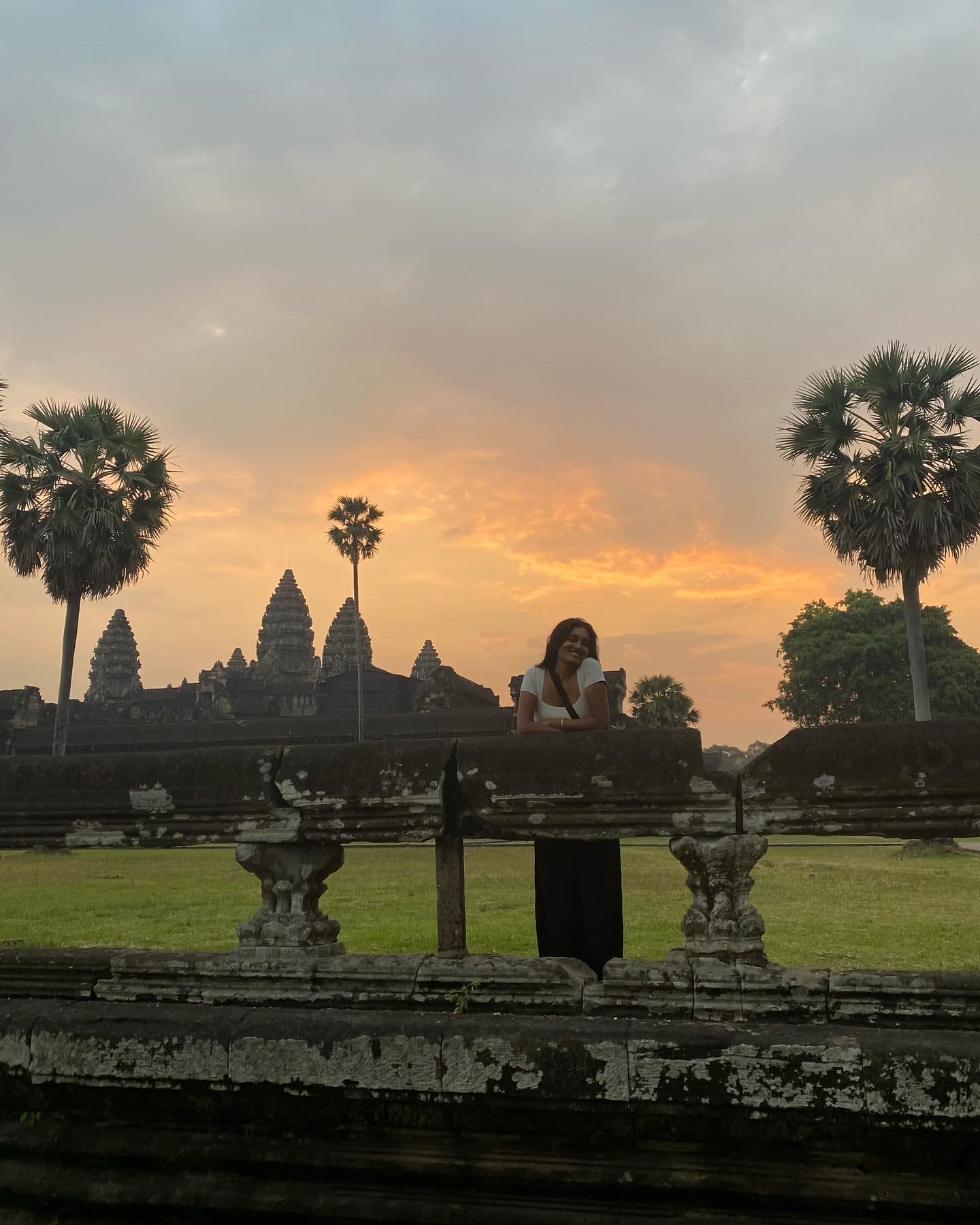
Sunrise at Angkor Wot (photo: Valarmathi Vishnu)
Before you go
Why did you pick National University of Singapore (NUS) for your exchange? How did you hear about it?
I was drawn to NUS for several reasons. As an International Relations major with a focus on Indo-Pacific affairs, it had been a long dream of mine to study in a region that was central to the themes I had been learning about in classes. I first came across NUS while researching graduate programs in international affairs, and its strong academic reputation and central location made it a stand-out.
When I learned that UBC had a partnership with NUS, I saw it as the perfect opportunity to experience the university firsthand and gain a fresh perspective on my coursework outside of North American academia. One of the other unique aspects of my decision was the opportunity to take Tamil language classes, which are not offered at UBC. As one of Singapore’s national languages, taking classes allowed me to improve my conversational skills immensely. The chance to pair policy coursework with language immersion was rare and incredibly meaningful.
“The chance to pair policy coursework with language immersion was rare and incredibly meaningful.”
What was the application process like? Any tips?
The process was straight forward but my advice would be to be honest and intentional about your reasons for wanting to go on exchange, and what you hope to learn. Taking the time to reflect on your goals will not only strengthen your application but also makes the entire process feel more meaningful. On the Singapore side, there were plenty of bureaucratic forms to complete and a detailed checklist of items to submit. Staying organized and proactive will be helpful, and be ready for a steady stream of emails, to-do lists and forms to keep track of!
Beyond that, course selection at NUS was one of the more challenging aspects of exchange for me. I recommend thoroughly researching the available classes before you go. Use tools, such as NUSMods, to find classes, build your timetable and consider backup options in case your first choices are full or unavailable. Pay attention to details: for example, the number of hours per week, exam schedules and where the lectures are held to avoid logistical headaches later.
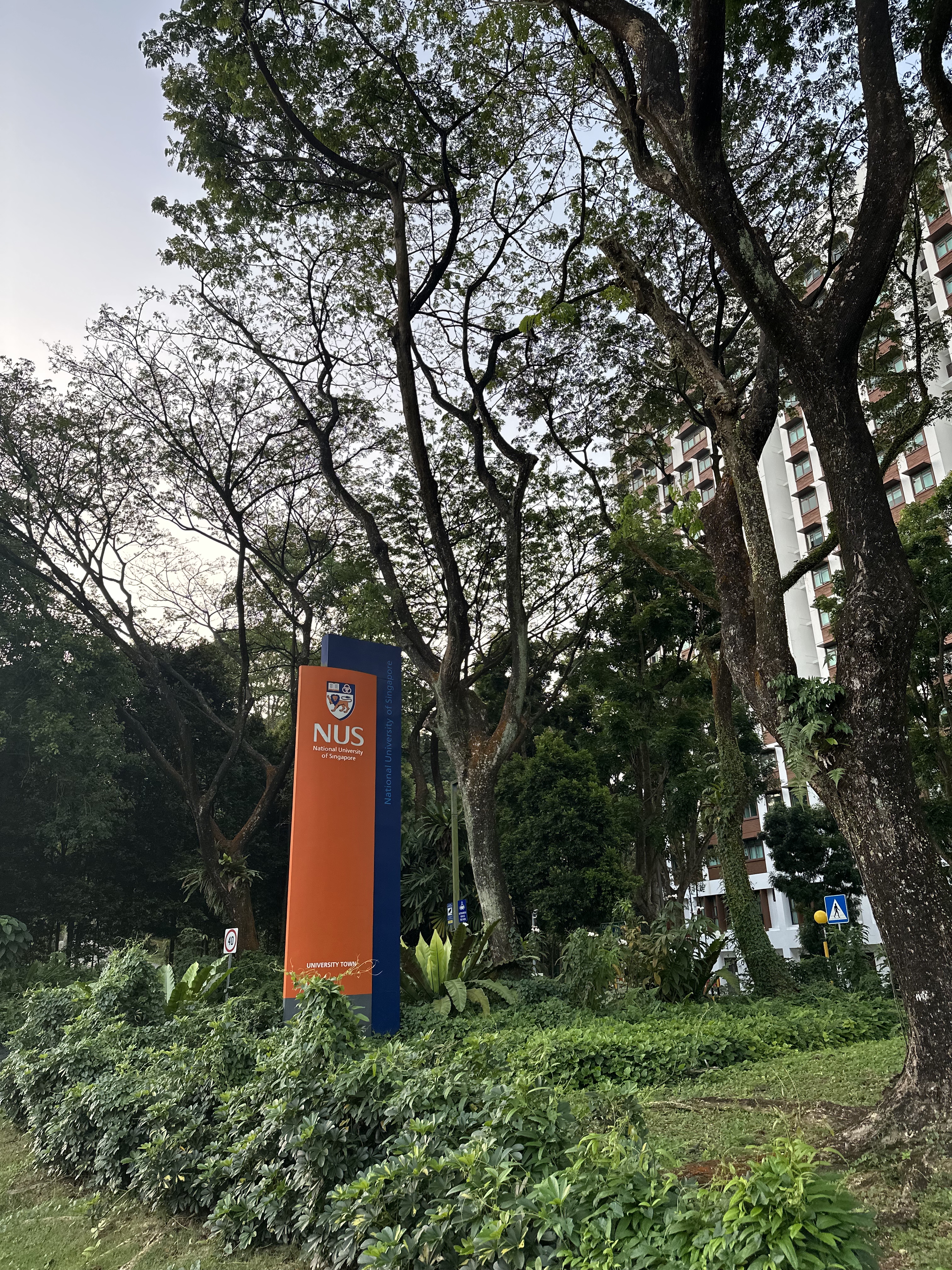
NUS Campus (photo: Valarmathi Vishnu)
How did you prepare? Anything to be aware of? (travel, cultural differences, classes, etc.)
I spoke to former Global Ambassadors and students who had gone on exchange to NUS from UBC.
What worries did you have beforehand? How did you overcome the anxiety?
Before my exchange, I had the typical worries on my mind: adjusting to a new academic environment, figuring out on-campus housing, managing transfer credits and course registration and acclimating to the heat, which I had heard so much about. I also wanted to make the most of my time there. So before I left, I created a specific list of academic and personal goals I wanted to accomplish. This list was helpful in giving me direction initially, and helped ground me when things weren’t going as planned. My overall advice would be to not have too many expectations, and let your experience unfold naturally.
During the experience
How was the overall experience? What did you learn?
Wonderful. I was placed in the University Scholars Programme at Cinnamon College, which had its own tight-knit residential community. It brought together a wide variety of students across different disciplines, and encouraged cross-cultural collaboration through shared meals, faculty-in-residence, and student-led events. This enriched my overall experience and allowed me to broaden my understanding of global affairs immensely.
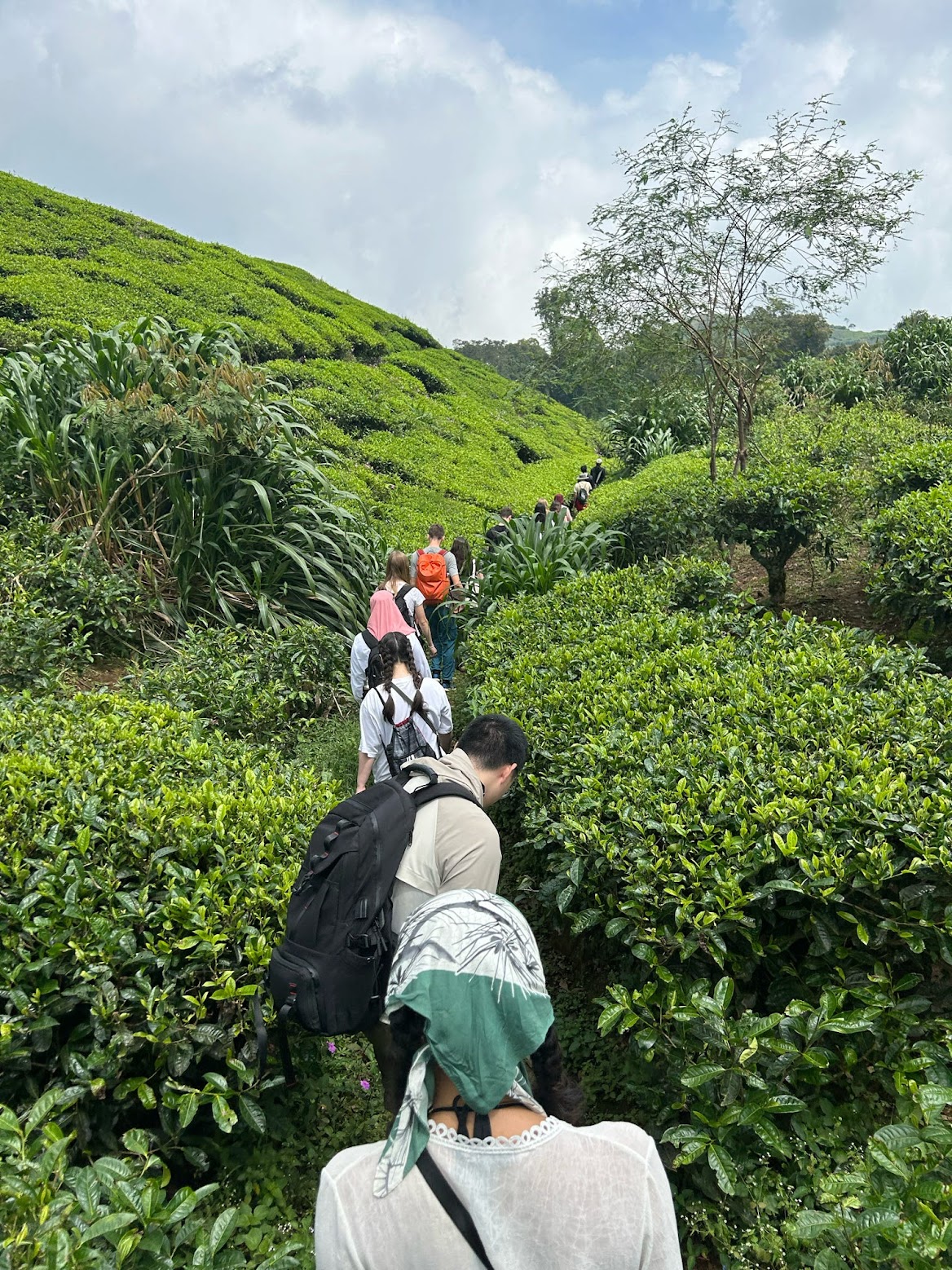
Field Study in West Java from Global Seminar experience (LFS 302b Impact Evaluation Analytics) in May 2024 (photo: Valarmathi Vishnu)
If you could change something or do it differently, what would you change or do?
There isn’t much I would change. I would remind myself how quickly the time goes and to be present for all of it!
How were the academics?
I found the academic experience at NUS to be a refreshing change from UBC. The class sizes were smaller, which allowed me to form meaningful relationships with both professors and classmates; that later came in handy in various ways. In one of my International Relations courses, International Organizations, there were students from all over the world, and our professor frequently brought in practitioners in the field to speak with us. Many of my other courses included fieldwork components to nearby sites and museums, which brought the material to life in exciting ways.
How was the social aspect?
Day-to-day life on campus was vibrant, and I made friends with locals and students and profs from all over the world. There were always events happening—from cultural festivals to student-led initiatives, which made it easy to get involved. One of my highlights was celebrating Sinhala and Tamil New Year at Yale-NUS. The extracurricular clubs are also very active at NUS, and there wasn’t a time in Utown (the university’s lively quad area with residential dorms and canteens) when some festival or another wasn’t happening.
Outside of academics, I found comfort in maintaining routines from home—martial arts and writing, for example—which helped me adjust and stay grounded, especially when I felt homesick or the weight of the fact that I was 8,000 miles away!
I was also fortunate to receive funding through the UBC-NUS partnership, and have a schedule that enabled me to explore many countries during my time abroad. Singapore’s central location in Southeast Asia, along with its excellent airport and transportation networks, made it incredibly accessible to explore nearby countries. Whether it was a quick weekend trip to Malaysia, Cambodia or Indonesia, I got to visit places I had always dreamed of seeing. From exploring ancient temples in Siem Reap and celebrating my birthday on top of a volcano in Bali, to learning how to scuba dive in Trincomalee, these trips were unforgettable.
Batu Caves (photo: Valarmathi Vishnu)
After the experience
Would you recommend this experience to others? What can they look forward to?
100%! My time abroad gave me the time to reflect on my academic and personal goals in a new context, and imagine new horizons for the future. Being in a completely different environment allowed me to step back from my usual routines and think critically about what I truly wanted out of life—both personally and professionally. It offered me the time and mental clarity to explore my aspirations in a way I hadn’t before.
Living in a place where each day is filled with surprises was one of the most exciting parts of my exchange. While I had the opportunity to travel to more than 10 countries in Asia—and visit historical sites, conduct fieldwork, take cooking classes, etc.—what I cherish most about my time abroad were the simple, everyday moments that made me feel a sense of belonging by the end.
What was the impact on your academic and personal development?
From engaging with the University Scholars Programme community and exploring the Lee Kuan Yew School of Public Policy, to language immersion and daily life, NUS helped shape my academic direction and aspirations for the future. I am incredibly grateful to the Go Global program and International Relations department at UBC for facilitating such a meaningful learning exchange.
Now that I’m back at UBC for my final year, I feel incredibly lucky to bring this perspective into the classroom. The insights I gained, and the people I met have reshaped how I think about my academic path, career goals, and place in the world.
Read more Go Global student stories.
